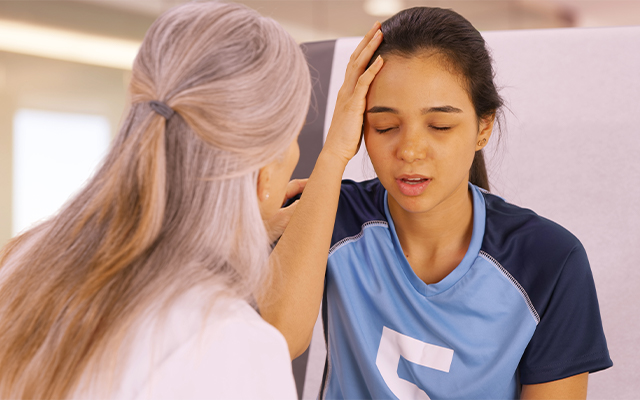Kids' Concussions: What You Should Know

Each year, hundreds of thousands of children—from grade-school kids who crash their bikes to teenage athletes who collide in midair— hit their heads hard enough to sustain a concussion.
Still, experts say, most concussions are not life-threatening. While every concussion is serious, most kids eventually get better with treatment. However, it’s important to take time to recover. If you don't, you have a greater chance of getting another concussion. A repeat concussion that occurs while the brain is still healing from the first injury can be very serious and can affect you for a lifetime.
What Parents Can Do
Suspect your child might have a concussion? Follow these four steps:
- Take them out of the game.
A concussion is a type of traumatic brain injury, so if there's any question at all, pull them to the sideline. Your child doesn't have to be knocked out—or even have trouble walking—to have a concussion. The signs can be more subtle. Only about 10% of people with concussions lose consciousness. - Look for signs and symptoms.
Concussion symptoms vary and may take up to 24 hours to become apparent. Possible signs and symptoms include a dazed look, confusion, dizziness, forgetfulness, headaches, nausea, tiredness, irritability, and depression. “Fogginess” is common, as is sensitivity to light or noise. - See your doctor.
If a concussion is suspected, it's important that your child see a healthcare professional right away. If serious symptoms are immediately obvious, head for the emergency room. - Don't rush. The latest research suggests that concussion treatment should be gradual and customized, according to symptoms. While many of those who suffer a concussion miss school, others return to class right away. The key: Listen to your child's doctor and know that concussions don't heal overnight.
Learn more about concussions on the CDC’s Heads Up website.
Source: https://www.cdc.gov/HeadsUp/